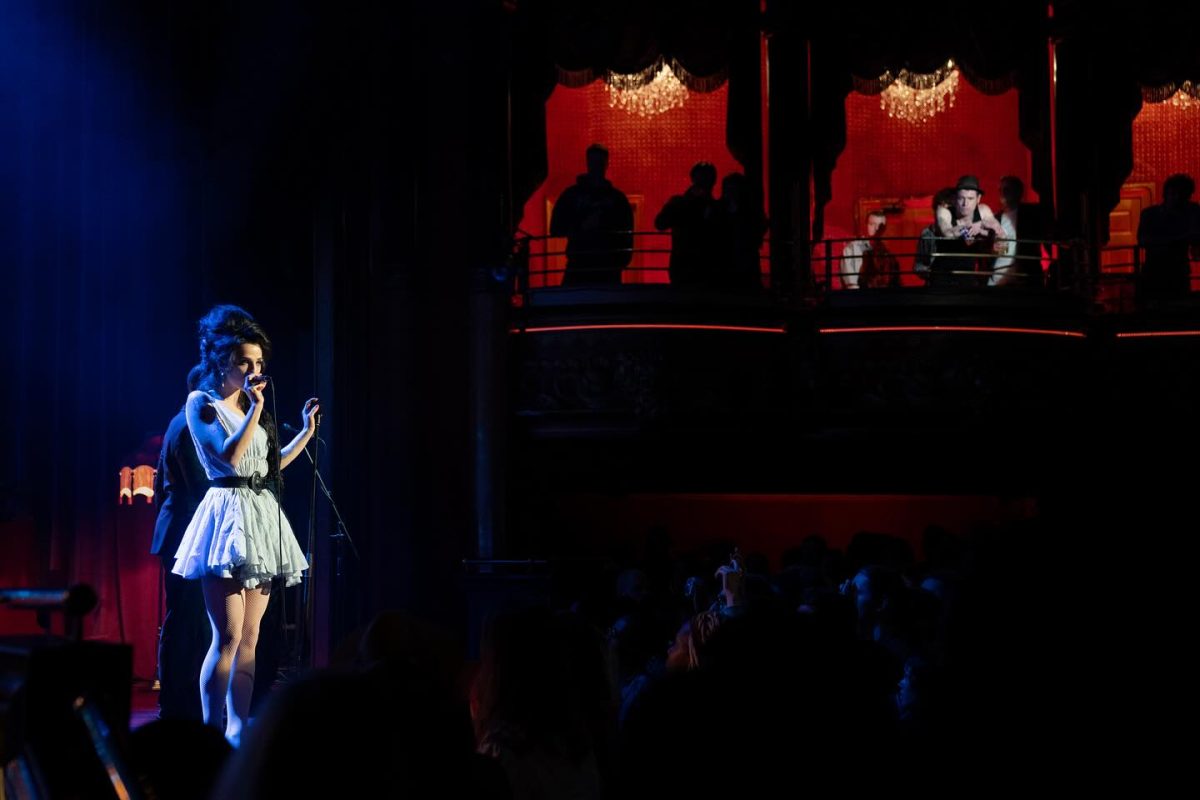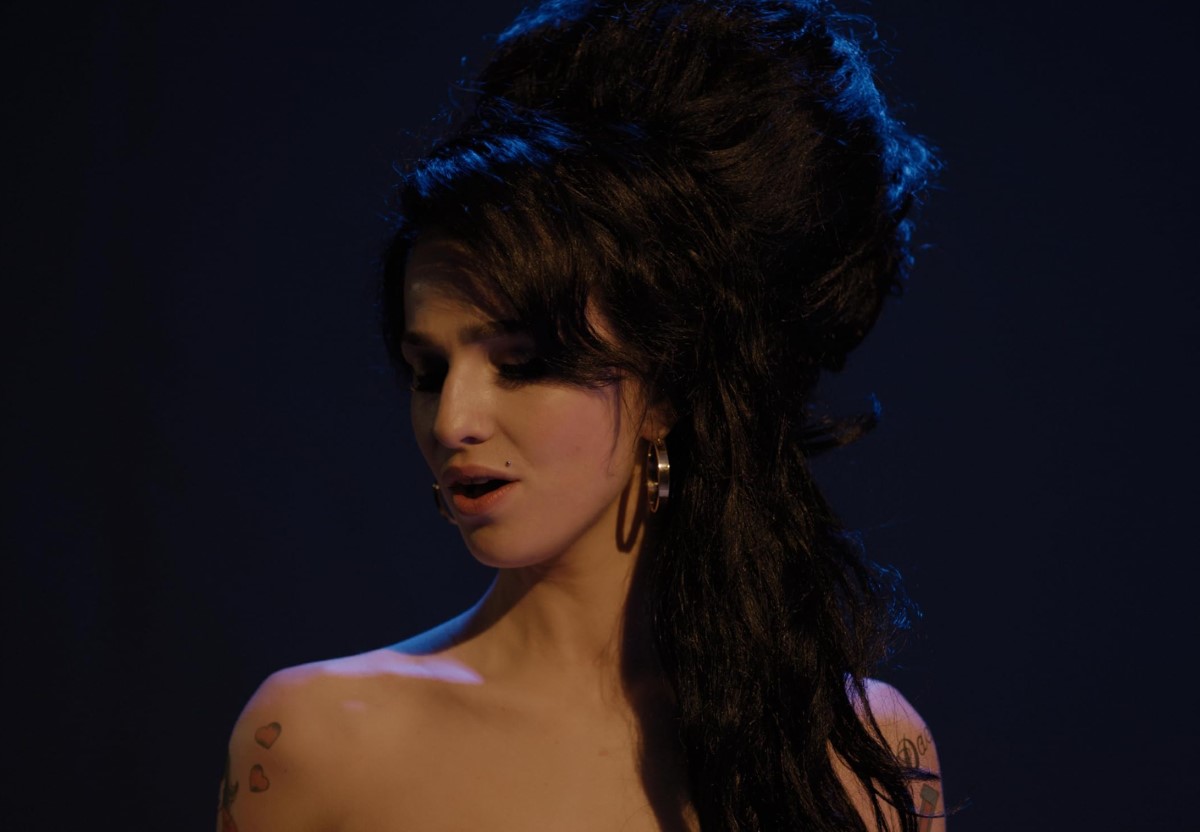Back to Black (2024)
Directed by Sam Taylor-Johnson
The wave of musical biopics has not spared Amy Winehouse: Marisa Abela avoids caricature, but the film remains superficial, teetering between hagiography and marketing.
There’s a moment in Back to Black that promises a spark: the lengthy sequence of the first meeting between Amy Winehouse and her future husband Blake Fielder-Civil. It has everything, starting with a setting, a pub in a London suburb, that tells a lot. It is in such a venue that the budding singer-songwriter began performing her first concerts, and it is here, from a jukebox in the billiards room, that her first album (Frank) echoes, with the recorded voice overlapping the live one.
But the pub is also a place of perdition—or a refuge to lose oneself, depending on the perspective—for a fragile girl who drinks too much (her grandmother realizes this immediately when, in the first minutes of the film, she firmly and nonchalantly takes a bottle of wine from her), who in that sequence guzzles an absurd cocktail made of whiskey and banana liqueur. And thus, that pub becomes the ideal setting to stage the love at first sight with this evidently unstable guy: between mutual compliments on their tattoos (the body as an emotional map) and looks teetering between desire and devastation, the two first recognize and then get to know each other, moving from the bar to the billiards, touching and provoking each other, while diegetic music plays until, surprise, Blake’s girlfriend appears.

It’s a long sequence that, in its movements and tone, suggests the possibility of a musical, a departure from realism in favor of stylization, breaking away from the stale constraints of the hagiographic biopic to potentially offer a deeper, more complex reinterpretation of the icon. It’s a hope that dies there, because Back to Black ultimately adheres to the latest rules of a non-genre (the biopic is not a genre: it’s a container) now legitimately on the brink between the effect of a saintly image and a marketing operation: all thanks to the global triumph (at the box office and the Oscars) of Bohemian Rhapsody, a sanitized and bland version of Freddie Mercury’s life, which has spawned similar epigones (like Respect about Aretha Franklin, Whitney Houston: I Wanna Dance with Somebody, Bob Marley: One Love) as if the life of a music star cannot escape this type of narrative (despite Elvis and Rocketman, awaiting the Bob Dylan film by James Mangold).
Marisa Abela is on its side, who does not resort to caricature and performs Winehouse’s pieces well, but it’s not enough if there’s sloppy direction (Sam Taylor-Johnson), if the portrayal of addiction is lazy (Jack O’Connell in the role of Blake reminds of the protagonist of the mediocre A Million Little Pieces, namely Aaron Taylor-Johnson, the director’s husband), if the supporting cast is on autopilot (normally Lesley Manville, here playing a grandmother with a glorious past, is a tremendous actress who would save a disaster: normally), if the attitude is at least indulgent (including relatives, even her father Mitch claims to have been described too favorably), if it stays on the surface of demons without going deeper.
Lorenzo Ciofani
Cinematografo, April 12, 2024





